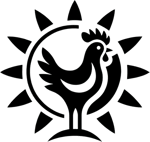The Irreducible Point of Consideration: Freedom Behind Bars
The body is deprived, but the mind is free.
6/28/20254 min read


“Was freedom that sprang from the source of nothingness always unconditional ...? Or … did freedom not always have to be understood in a situation - and hence as essentially conditioned by that situation?” - The Visionaries, Wolfram Eilenberger
On what does freedom depend? What is its source and what is its limit?
Freedom Conditioned by Circumstance
The deprivations faced by pretrial detainees cannot be overemphasized. For people who are presumed innocent, the reality of daily life in jail is a contradiction to that presumption. As stated in my previous post (Guilty Until Proven Innocent), this begins with the inability for detainees to assist with building their own defense. While my family is fortunate to be able to retain the services of a private attorney, many rely on overburdened public defenders, which leaves them even more cut off from the progress of their case.
Deprivations imposed on pretrial detainees include, but are not limited to:
No freedom of movement
No nourishing food
Inability to go outdoors (45 minutes once per week for my husband, and sometimes not even that if a lockdown occurs, resulting in substantial loss of countless benefits such as vitamin D, healthy sleep pattern, cognitive function, psychological health)
Physical separation from family (mutually destructive for both the detainee and the family)
Limited Access to Legal Counsel
Deprivation of Privacy
Risks to physical safety (someone was killed in a dorm next door to my husband’s. My husband’s own life was threatened by two individuals in his first dorm for no discernible reason.)
No access to church
If only 10-15% of pretrial detainees are eventually released without a conviction (precise numbers are hard to find, but that is a conservative estimate based on what is available), this is a considerable number. In LA County jails alone between 6,000 and 7,000 inmates are awaiting trial and have not been convicted of any crime on any given day. 10% of 6,000 is 600 individuals on any given day who are unlikely to be convicted of any crime. (LASD report, JusticeLA, Yale Study).
There are serious moral questions to be asked about this indiscriminate denial of the rights of people who are awaiting trial for months to years.
The Last Frontier
In light of the list above, freedom is conditioned by circumstance. It is had, and then lost, in that order. Regaining freedom is subject to government, money, justice or Divine intervention.
Yet in addition to letters and photographs, Chris is allowed to receive books. This concession is a nod to a different kind of freedom, that which can never be stripped away like all outward liberties. Whether deliberate or not, the liberty to read is a recognition of the unconditional freedom of the mind.
The Visionaries was the first book I mailed to Chris in jail. The passage I quoted at the outset of this post stuck with me the first time I read it in April, and I wrote to Chris to ask for his thoughts, from his present confinement, on the source of freedom. That letter never reached him. Last week, he was browsing The Visionaries for a second time, and wrote to me that he had “stumbled on something…that didn’t catch my attention the first time.” It was this very same passage.
In response to this passage, Chris wrote:
“Freedom of the mind will always be the only real question in this matter, it is the last frontier concerning the fight to sustain freedom. [Inner freedom is] the irreducible point of consideration.”
Reading and prayer have been the most beloved liberties of the past 3 ½ months. If you would like to follow along with our reading list, you can find it here on my website.
The Privilege of Books
The body is deprived, but the mind is free - at least in theory. This freedom depends on three primary factors: The willingness to exercise the mind by literary means, someone on the outside willing and able to provide books, and the literacy to read them.
Here lies a poignant irony - that around 70% of incarcerated individuals are illiterate by a highschool standard (Prison Literacy Programs). For these individuals, the liberty of the mind can be illusory - it is sometimes undesired, unnoticed, or simply out of reach. Chris has noted multiple times in his letters to me that some of his fellow inmates appear to willfully reject the pursuit of it, while others may simply be unable to grasp the meaning or purpose of it.
Freedom Had, Freedom Lost, Freedom Found
In answer to the question posed by my initial quote - I believe freedom is both. It is outwardly conditioned by all manner of forces at work. But it is also unconditionally available, inwardly, to those who seek it.
Among the many seemingly hopeless stories Chris has related to me from inside, there are exceptions - an inner light for those open to finding freedom behind bars. Take David (not his real name), a homeless heroin addict with no family outside, no visits, nobody to call, and no money to use for the Commissary. He initiated a prayer circle in which Chris participated every evening until he got moved to a different room. David would send out the call “If you’re stressing, come get your blessing!” and whether it was three participants or ten, they would circle up to pray and discuss matters of faith.
David, who has been in and out of the system for quite some time, expressed his relief to Chris that he was able to be “clean” while in jail, and spoke about changing his life when he got out - “its all going to be different this time.”
I pray that he will find his way.
